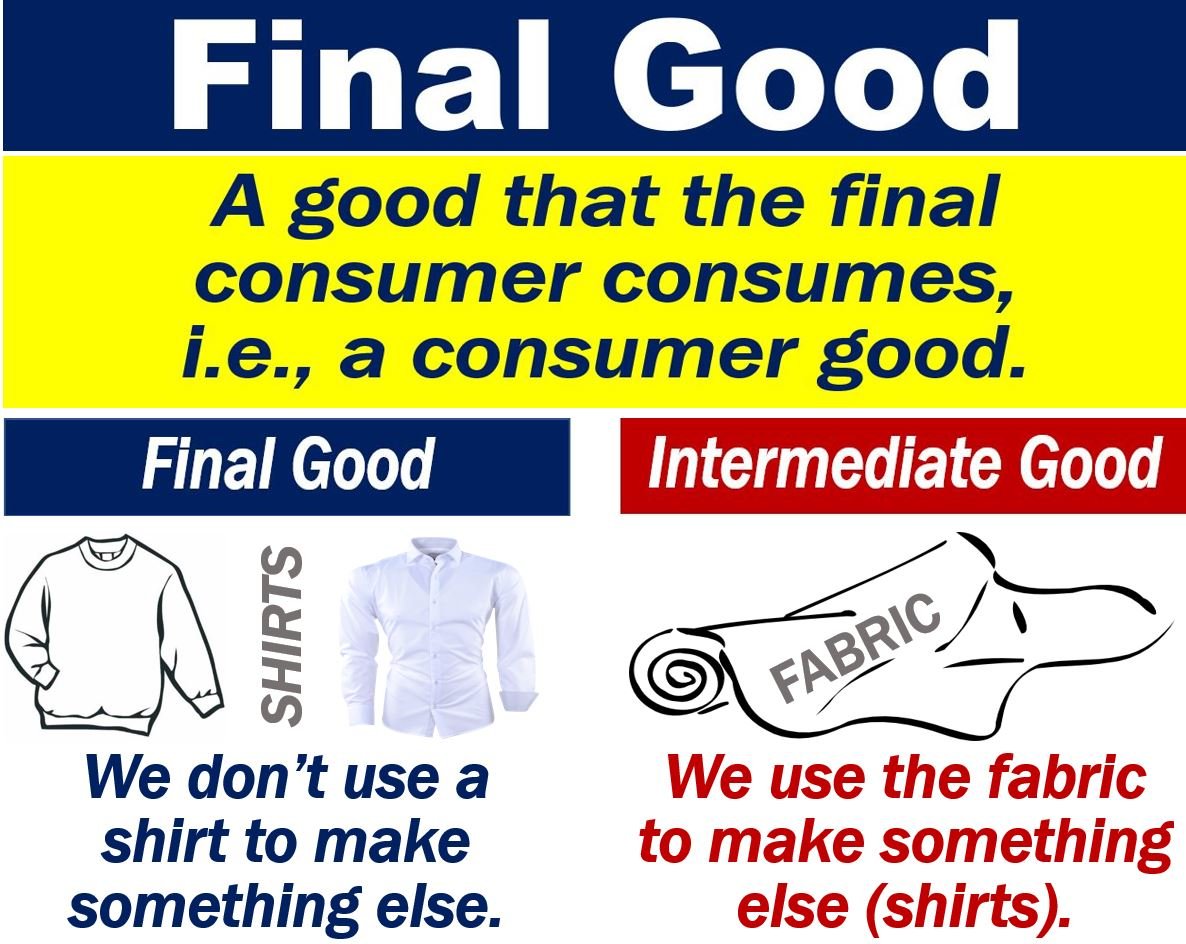A Final Good is a product that the final consumer uses or consumes. The good (product) does not require any additional processing. A company makes a final good for the direct use of the final consumer.
Put simply; the term refers to any commodity that a company produces and a consumer subsequently consumes. The consumer consumes it to satisfy his or her current wants or needs.
This emphasis on the final good underscores its role in fulfilling consumer satisfaction, as it is the ultimate purchase that meets the consumer’s need or desire.

Final good ultimately consumed
We do not use a final good for the production of something else. The good is the end of the line. In other words, the next step is to consume it.
Goods which we use in the production of something else are ‘intermediate goods.’
Example
For example, a cotton shirt is a final good, but cotton textile (fabric) is an intermediate good.
We use the textile to make something else, i.e., a shirt. However, we consume the shirt, i.e., we wear it. We do not use the shirt to make something else.
Final good and GDP
When calculating national income and output, i.e., GDP, final goods are only new goods. GDP stands for gross domestic product.
For example, GDP does not include items that we counted in previous years. We do not want to count them twice.
When calculating GDP, the term ‘final goods’ includes not just new products, but also services.
Final goods are essential to consumer markets, as they represent the completion of the production process and are ready for purchase and use by consumers.
Some goods are both
Some goods may be either final or intermediate goods.
Is an egg, for example, a final or intermediate good? That depends. If I buy the egg at a grocery store and eat it at home, it is a final good.
What if a baker buys an egg and uses it to bake a cake? What if the baker subsequently sells the cake to a consumer? In that case, when the baker bought the egg, it was an intermediate good. The cake is the final good.
